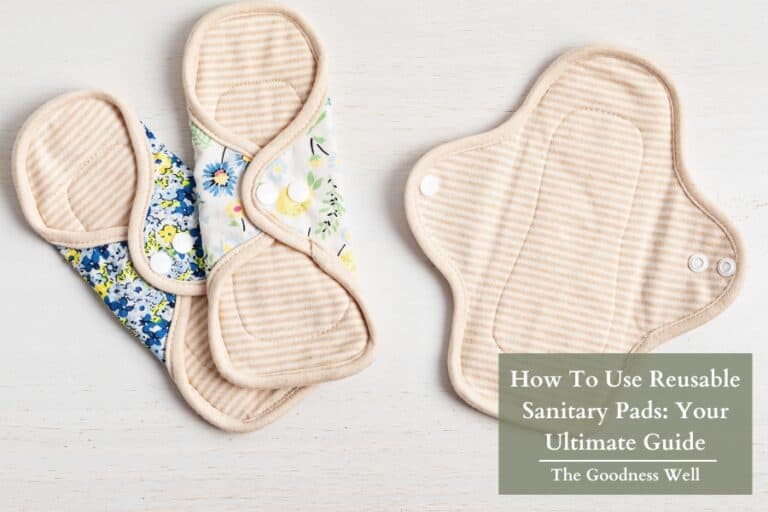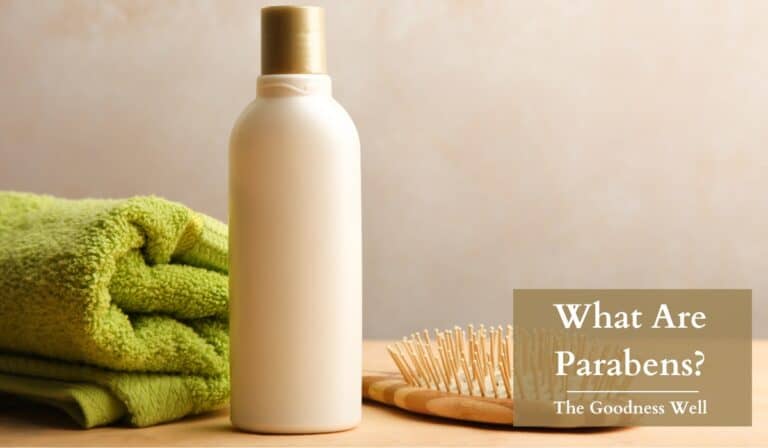How I Use Coconut Oil For Natural Skincare
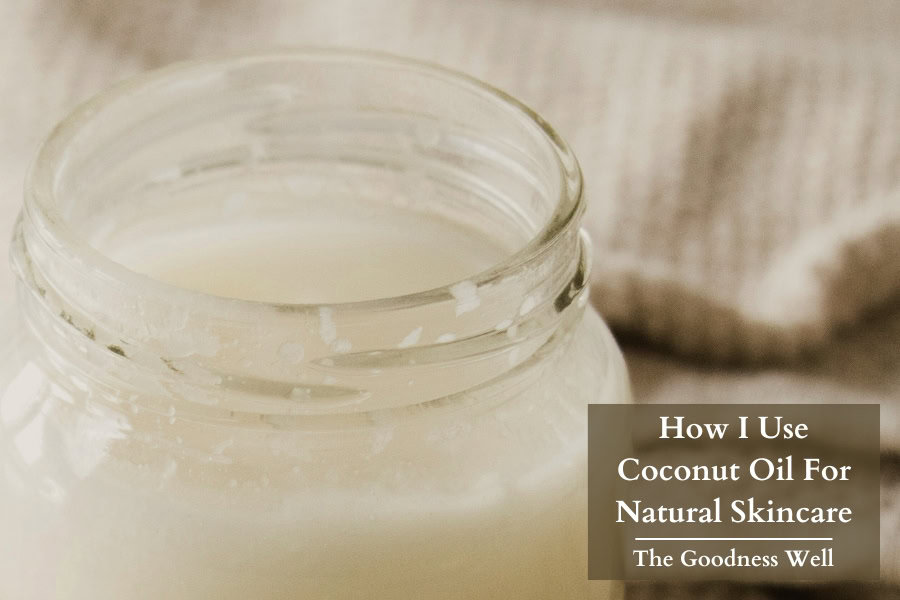
Coconut oil is one of nature’s true gems. It’s great for cooking and baking but it’s also good for skincare as well.
I grew up using coconut oil as another option for moisturizer and lotion but even that was only the tip of the iceberg.
In this post, I’ll share my experiences and insights on using coconut oil for natural skincare, including the pros and cons, best practices, and personal tips.🥥
TL;DR
Coconut oil is a great addition to your natural skincare routine, not only is it versatile but it offers anti-inflammatory, antimicrobial, and hydrating benefits. You can use it as a body scrub, after-sun care, or makeup remover. Just be aware that individual skin reactions can be different from person to person. While I use coconut oil in many ways, I avoid it as a facial moisturizer due to past breakouts, but it works great everywhere else. Try it out and see how coconut oil can benefit you!
Coconut oil is a staple in many natural skincare routines, and for good reason.
Not only is it super versatile but it’s packed with natural benefits.
However, not all coconut oils are created equal, and it’s important to understand the differences and how to use them effectively.
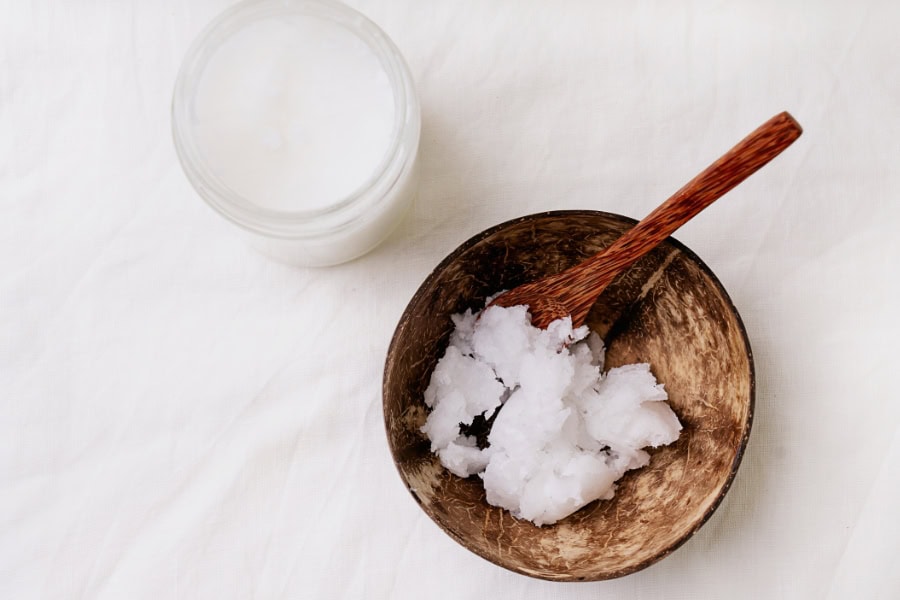
Unrefined vs. Refined Coconut Oil: Which to Use?
Unrefined Coconut Oil:
Known as virgin or extra virgin coconut oil, unrefined coconut oil is extracted from fresh coconut meat.
Unrefined Coconut oil is rich in antioxidants and because it is minimally processed it retains more nutrients, has a stronger coconut aroma, and is generally considered more natural.
I use this type of coconut oil for my skin because it’s suitable for most skin types, especially dry skin.
Refined Coconut Oil:
Refined coconut oil is made from dried coconut meat, also known as copra. It is processed to remove impurities, which often includes bleaching and deodorizing.
However, it does have a longer shelf life, neutral scent, and taste, and is more affordable.
For skincare, I recommend using unrefined coconut oil if you want to maximize the natural benefits and nutrients. However, if you have sensitive skin or prefer a neutral scent, refined coconut oil can be a good option.
Unrefined coconut oil is best for low to medium-heat cooking, while refined coconut oil is best for high-heat cooking (frying, sautéing, roasting).
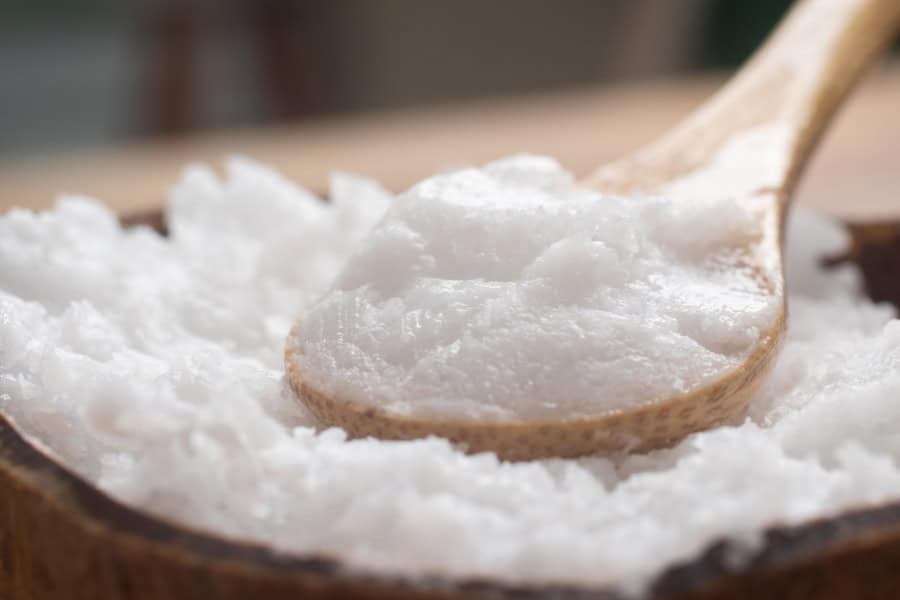
How I Use Coconut Oil in Your Skincare Routine
I have grown to absolutely love coconut oil in my skincare routine but that was only after a lot of trial and error.
I’ve learned that it’s not suitable for every situation. For instance, I still use coconut oil regularly, but I’ve noticed that it tends to cause breakouts if I apply it on dry patches on my face.
To play it safe I don’t use it as a moisturizer on my face but I will use it for body moisturizing, lip care, and as a makeup remover.
Coconut oil is also a great mixing agent. I’ll even mix it with essential oils, aloe vera, brown sugar, or coffee grounds to make exfoliating and other DIY natural beauty products even after suncare.
Moisturizer:
- Apply a small amount of unrefined coconut oil to damp skin to lock in moisture. This is especially effective for dry areas like elbows, knees, and feet.
- I even take this a step further sometimes and will add a large amount of coconut oil to my feet and then wrap them or put a sock on overnight. My feet feel super soft and moisturized in the morning.
Makeup Remover:
- Coconut oil can be used to gently remove makeup. Apply a small amount to your face, massage it in, and then wipe it off with a warm, damp cloth.
- Just don’t get it in your eye or your vision will be blurring for a few minutes until you get it all out lol but at least it won’t burn at all😂
Lip Balm:
- Use coconut oil as a natural lip balm to keep your lips soft and hydrated. I also like to mix coconut oil with brown sugar and use it as a lip scrub.
Body Butter And Scrubs:
- Just like a lip scrub, I like to mix coconut oil with sugar or salt and create a natural exfoliating scrub for my body. It helps get rid of dry skin and leaves me feeling super smooth and refreshed.
- I also make my own organic body butter which contains organic unrefined coconut oil. And oh man…this stuff is gold. Our family and friends ask us to make them more all the time!
Hair Mask:
- You can also apply coconut oil to your hair as a deep conditioning treatment by leaving it on for at least 30 minutes before washing it out.
- I have learned that if I try and use it on my hair in an updo or with my curls out the coconut oil makes my hair frizz if I leave it on. So just make sure to wash it out.
Benefits of Coconut Oil for Skin
Moisturizing
Coconut oil is rich in fatty acids mostly, lauric acid, making it a great moisturizer.
It also has caprylic and capric acids, which deeply penetrate the skin for long-lasting hydration, and a small amount of oleic acid that helps improve skin elasticity and retain moisture.
Antimicrobial Properties
Because of its lauric acid, coconut oil has antimicrobial properties that can help in treating minor cuts, scrapes, and acne.
In the wintertime, my hands tend to crack. I stopped using Vaseline and switched to a more natural solution, coconut oil, which has helped protect my skin from infections that might occur due to cracks and dryness.
Anti-inflammatory:
Coconut oil can reduce inflammation, which makes it beneficial for soothing irritated skin and conditions like eczema.
Sometimes when my hair is in braids my scalp can become dry so I like to use coconut oil to help hydrate and soothe any itchiness. It works amazing!!
What Coconut Oil is NOT Good For
Oily and Acne-Prone Skin:
While coconut oil has antimicrobial properties, it is also comedogenic, meaning it can clog pores. This can lead to breakouts, especially in oily and acne-prone skin types.
I typically don’t use coconut oil on my face as a moisturizer for this reason. I haven’t had any problems with it as a makeup remover or moisturizer for any other part of my body.
Certain Skin Conditions:
If you have sensitive skin or conditions like seborrheic dermatitis, coconut oil might make the problem worse.
Final Thoughts🥥
Coconut oil is a great addition to your natural skincare routine, but it’s important to understand how to use it effectively and be aware of its limitations.
Whether you choose unrefined or refined coconut oil, make sure to listen to your skin. Just because something works for someone doesn’t mean it won’t or will work for you.
But it’s definitely worth a try!
Frequently Asked Questions
Coconut oil is generally safe for most skin types, but it can clog pores and cause breakouts in people with oily or acne-prone skin. You can always try it and see if it works for you.
Yes, coconut oil can be used as a face moisturizer but it’s important to do a patch test first, especially if you have sensitive or acne-prone skin. I use coconut oil for my body but not my face.
Coconut oil has antimicrobial properties which can help with minor acne but it can also clog pores, potentially worsening acne for some people. It’s best to use it sparingly and monitor how your skin reacts.
Mixing coconut oil with ingredients like essential oils, aloe vera, brown sugar, or coffee grounds can give you great benefits. For example, adding essential oils can provide additional therapeutic properties, aloe vera can soothe the skin, and brown sugar or coffee grounds can create effective exfoliants.

